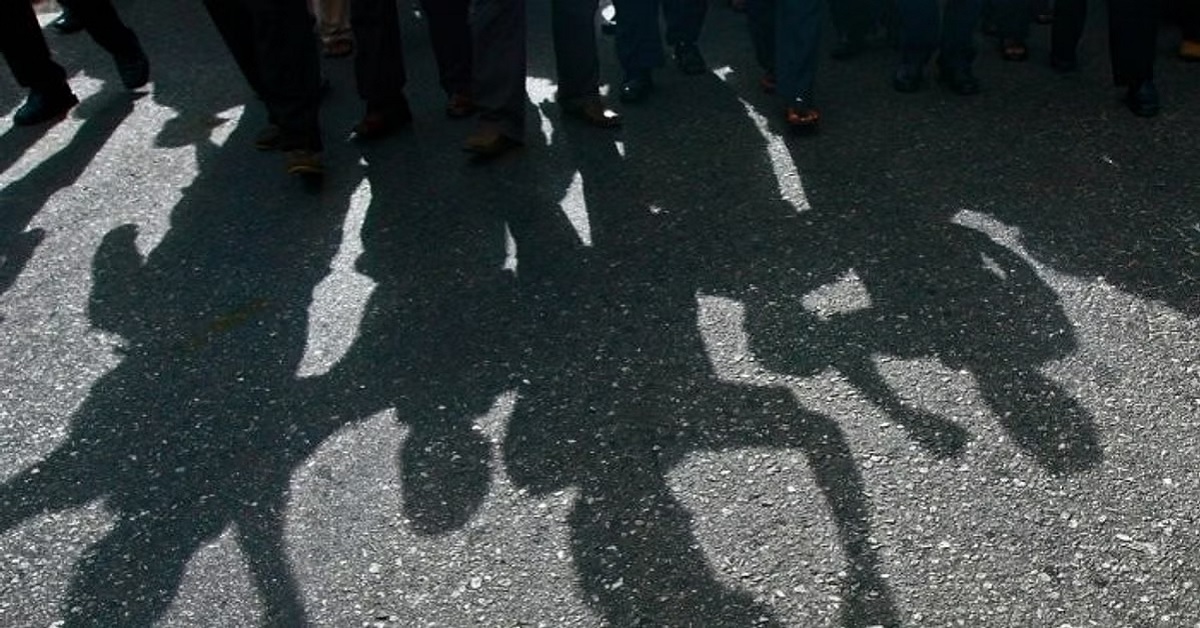A communal clash broke out in Bihar’s Jamui district on February 16 after stone-pelting disrupted a religious procession, leading to violent confrontations. The incident, which occurred in Baliyadih village under Jhajha police station jurisdiction, resulted in multiple injuries, including serious harm to Jamui Nagar Parishad deputy chairman Nitish Sah. He was admitted to Indira Gandhi Institute of Medical Sciences (IGIMS) for treatment, while five others sustained minor injuries.
According to Jamui police, the violence unfolded at around 4.30 pm when a group of approximately 30 people, led by members of the Akhil Bharatiya Vidyarthi Parishad (ABVP) and Hindu Swabhimaan Sangathan, were returning from a Hanuman temple in a procession. Despite a contingent of six police personnel escorting the gathering, tensions escalated when the participants allegedly began shouting slogans near a local mosque. Soon after, alleged stone-pelting ensued, triggering a full-blown clash between groups from the Hindu and Muslim communities.
Several vehicles, including motorcycles and cars, were damaged in the melee. Among those injured were individuals identified as Nitish Kumar Sao, Khusbu Pandey, Pintu Kumar, Madhavlal Kashyap, and Suraj Barnwal. In response, the district administration imposed strict measures to contain further violence.
State response and internet suspension
Given the seemingly volatile nature of the situation, the Bihar government imposed a 48-hour internet suspension in Jamui district as a preventive measure. District Magistrate Abhilasha Sharma justified the decision, citing concerns that social media platforms could be used to spread inflammatory content, incite violence, and further disrupt communal harmony. The restriction, enforced under Section 5 of the Indian Telegraph Act, 1885, limits access to popular platforms such as Facebook, Twitter, WhatsApp, YouTube, and Telegram.
Munger range Deputy Inspector General (DIG) Rakesh Kumar defended the internet ban, stating, “Various social media platforms and so-called news portals have been spreading rumours, exacerbating the tension. We took this decision to prevent further disturbances.” The state’s approach highlights an ongoing trend of digital blackouts being used as a tool for crisis management, though it raises concerns about suppression of information and freedom of speech.
Police action and political undertones
In the aftermath of the violence, law enforcement agencies registered two separate First Information Reports (FIRs) under sections of the Bharatiya Nyaya Sanhita (BNS) related to rioting, inciting violence, and destruction of public property. One FIR, based on a complaint from local residents, named 41 individuals, eight of whom have been arrested. The second FIR was lodged against unidentified persons.
Superintendent of Police (SP) Madan Kumar Anand assured that additional security forces had been deployed in the affected areas, with senior officers closely monitoring the situation. However, the broader political climate in Bihar adds another layer to the incident. With the state assembly elections scheduled for October, communal clashes such as this have the potential to be politicised.
It is notable that the groups leading the religious procession – ABVP and Hindu Swabhimaan Sangathan – are affiliated with right-wing organisations. The decision to chant slogans near a mosque, as reported by the district magistrate, suggests deliberate provocation, which aligns with broader patterns of polarisation observed in election years. Such incidents often serve as flashpoints for communal rhetoric, aiding political forces seeking to consolidate voter bases along religious lines.
The larger implications of rising communal tensions
Bihar has witnessed an increase in communal incidents in recent years, with religious processions frequently turning into sites of confrontation. The Jamui incident fits within a larger trend of heightened sectarian tensions across India, where public religious expressions, often involving processions and chanting, are strategically used to provoke responses from opposing communities.
Moreover, the state’s decision to suspend internet services, which the authorities might deem the same to be effective in curbing immediate escalation, raises concerns about the government’s approach to crisis management. Such measures, instead of addressing the root causes of communal discord, serve as a temporary fix while leaving underlying grievances unaddressed. This trend of using blanket digital blackouts also raises important questions about democratic rights, access to information, and state overreach.
As Bihar moves closer to its crucial state elections, incidents like these will likely be used by different political factions to push communal narratives. The role of law enforcement in ensuring neutrality and preventing further violence will be a key test for the administration in the coming months. If not handled carefully, the Jamui clash could become yet another episode in the deepening communal fault lines in India’s political and social fabric.
Related:
Tragedy at KIIT: The death of Prakriti Lamsal and the University’s controversial response
Targeting Press Freedom: The unexplained censorship of Vikatan and the erosion of free speech
